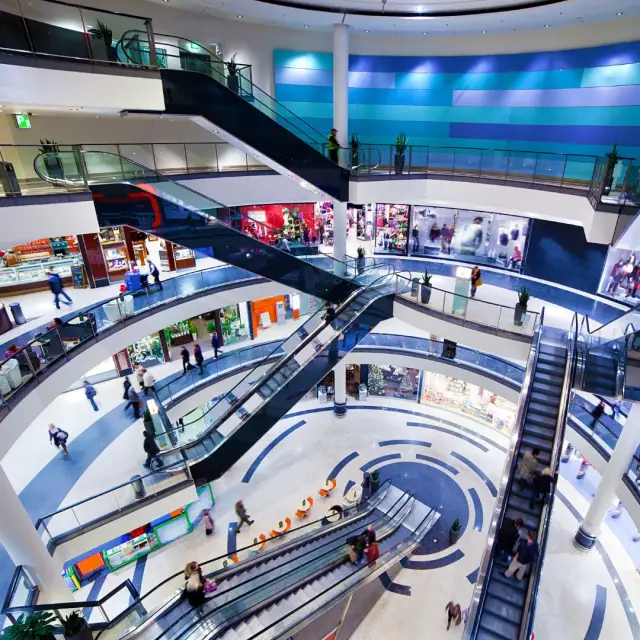In Colombia, holidays are an integral part of the cultural and social life of the country. With a diversity of religious, historical and cultural celebrations, these holidays have a significant impact on the daily routine of Colombians, especially during business hours.
Colombia is known for having one of the most extensive holiday calendars in the world. With 18 national holidays and a variety of regional and local celebrations, Colombians enjoy numerous days of rest throughout the year. These holidays can be religious, civic or commemorative, and each has its own history and meaning.
Types of holidays
Religious : Religious holidays are some of the most important in Colombia. They include Holy Week, Christmas, the Day of the Immaculate Conception and the Ascension of the Lord. These days are deeply rooted in Colombian culture, and often involve celebrations and rituals that affect business hours.
Civic : Civic holidays commemorate historical events and important figures in Colombia's history. Independence Day (July 20) and Battle of Boyacá Day (August 7) are notable examples. These days are usually marked by parades, official events and cultural activities.
Local : In addition to national holidays, many regions and cities in Colombia have their own holidays. These may be based on local traditions, patron saints, or regional historical events. For example, the Barranquilla Carnival is a significant celebration in the city of Barranquilla.
Impact of holidays on business hours
Holidays in Colombia have a considerable impact on business hours, affecting both large establishments and small businesses. This impact varies depending on the type of trade and the region of the country.
Large establishments and shopping centers
In large cities, shopping centers and large establishments usually have extended hours during holidays. This is because many people take advantage of these days off to go shopping, socialize, and participate in recreational activities. For example, during the Christmas season, shopping centers in cities such as Bogotá, Medellín and Cali extend their opening hours to accommodate increased customer traffic.
However, not all holidays are the same. During the most solemn religious holidays, such as Good Friday, many large establishments reduce their operating hours or close completely in respect of religious traditions.
Small businesses and local markets
Small businesses and local markets may experience a different impact. In many cases, these businesses close during the holidays to allow owners and employees to enjoy the day with their families. This is particularly common in rural regions and smaller towns, where community life and family celebrations play a crucial role.
On the other hand, in tourist areas and during popular holidays, small businesses can remain open to take advantage of the increase in visitors. For example, during the Barranquilla Carnival, many local businesses remain open and participate in the festivities, offering products and services to tourists.
Restaurants and bars
The restaurant and nightlife sector also sees a variation in its schedules during the holidays. On national and regional holidays, especially those that encourage celebration and socializing, such as Independence Day, restaurants and bars may extend their hours to accommodate crowds.
However, during solemn religious holidays, such as Maundy Thursday and Good Friday, many restaurants and bars across the country close early or do not open at all. This reflects respect for religious traditions and the decreased demand for leisure services during these days.
Adaptation of businesses and consumers
Both businesses and consumers in Colombia have learned to adapt to changes in business hours during holidays. This adaptation is crucial to maintaining efficiency and meeting customer needs.
Business strategies
Promotions and discounts: Many businesses take advantage of holidays to launch special promotions and discounts. This not only attracts more customers, but also helps offset potential losses on slower days.
Extended hours: As mentioned above, shopping centers and large establishments often extend their hours during popular holidays. This is communicated through advertising campaigns and social media to ensure customers are informed.
Online Services: With the rise of e-commerce, many businesses in Colombia offer online services and home deliveries, allowing customers to make purchases even when physical stores are closed.
Consumer behavior
Advance planning : Consumers in Colombia tend to plan their purchases in advance, especially during important holidays. This includes purchasing groceries, gifts, and other essential items ahead of the holidays.
Preference for local businesses: In rural regions and small towns, consumers often prefer to support local businesses during the holidays. This not only strengthens the local economy, but also strengthens community ties.
Use of technology : Technology plays a crucial role in consumer adaptation. The use of shopping apps, delivery platforms and social media allows consumers to stay informed about business hours and special promotions.
To better understand how holidays affect business hours in Colombia, it is useful to examine some specific case studies.
Easter
Holy Week is one of the most important religious celebrations in Colombia. During this week, especially Holy Thursday and Good Friday, many businesses close or reduce their hours. In cities like Popayán, known for its Holy Week processions, local businesses adapt their hours to align with religious celebrations and increased tourism.
Christmas and New Year
The Christmas season is another significant period. Malls and stores in big cities are extending their hours to accommodate the increase in shoppers. Local markets are also seeing an increase in activity, with vendors offering Christmas goods and decorations. In contrast, on Christmas Day and January 1, many businesses close to allow employees to celebrate with their families.
Barranquilla Carnival
The Barranquilla Carnival is a massive cultural celebration that attracts thousands of tourists each year. During this period, business hours in Barranquilla are adapted to take advantage of the influx of visitors. Many local businesses remain open and actively participate in the festivities, offering carnival-related products and services.
This adaptation is crucial to maintaining economic efficiency and meeting community needs during the holidays. As Colombia continues to evolve, both businesses and consumers will continue to find innovative ways to adapt and thrive in a changing environment.
